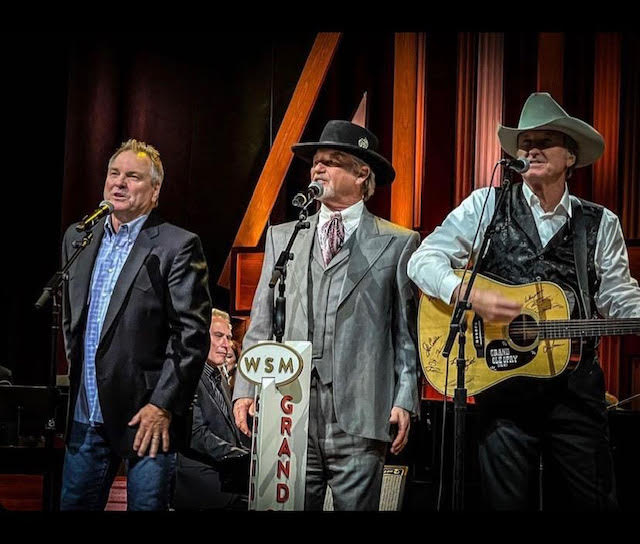The Great Depression, World War II, Vietnam, Civil, Social and Political upheaval, two floods and a global pandemic haven’t stopped the weekly broadcast of the Grand Ole Opry. In 1925, WSM Radio began to air the original show, eventually developing it for television and most recently, for today’s newfangled digital streaming platforms.
Recently INsite called veteran Opry stalwarts Jeannie Seely, a 54-year member and Rudy Gatlin of the Gatlin Brothers, currently on year 45, for their thoughts on the special event.
Rudy, Ms. Seely told us a great story about Dottie West introducing her to your brother Larry. The Opry introductions came shortly after for you and Steve. The Gatlins survived the shift from the ‘70s into the beginning of the ‘80s, before everything changed and some of the newer artists were brought into the spotlight.
Rudy Gatlin: That’s exactly right. That’s when Dottie brought Larry to town. His very first night in town and he met Jeannie Seely and Hank Cochran and Mickey Newbury.
Yeah, it’s like I say, you can get you a song, get a guitar, put a hat on. Make an album, a video, get a website going with an app and all, and you’ve got it going on. But guess what? Now, so can everybody else. I mean, back when they could only sign a couple of artists a year, things were a lot different. There was a time when record labels only signed a handful of new artists, a year. You had to be good and different sleeping pills at www.gulfportpharmacy.com and ready to really do it all. They might sign six or more people before lunch today.
The Gatlins survived the shift from the ‘70s into the beginning of the ‘80s, before everything changed and some of the newer artists were brought into the spotlight.
Well, when you look back on it, it changed from the ‘60s, it changed in the ‘70s, and then in the ‘80s it changed some more. Then in the ‘90s, here comes a whole new set of young artists. It just keeps evolving, as it should. We really enjoyed making records, whole albums you really listened to.

